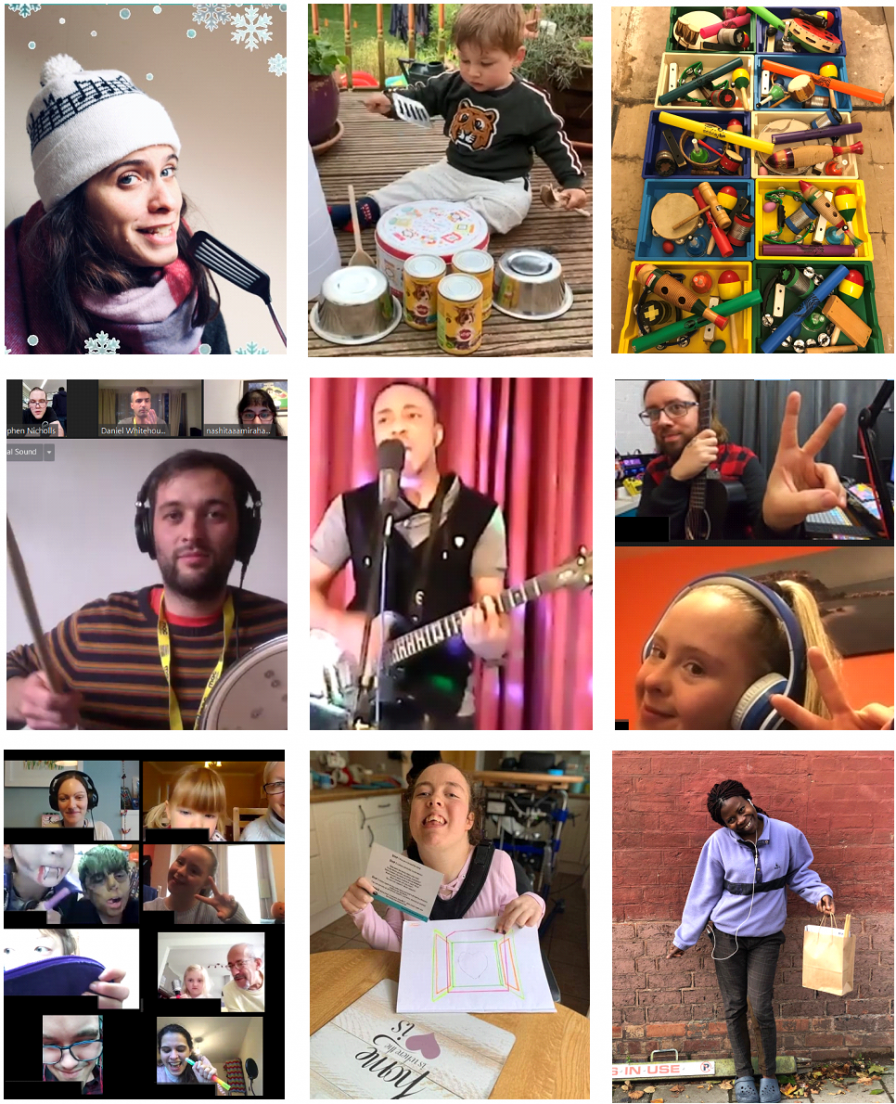"Tap on the Shoulder" - Strategic Reflection: MAC Makes Music 2020-2021

Earlier on in the month we released our ‘MAC Makes Music 2020-2021’ report. While the report is crucial for our own learning and development, we feel that our evaluators, Quench Arts, did a great job at showcasing learning that could benefit other organisations too.
We all know that inclusion is a continuous learning journey, however it is understated how much of a daunting prospect this can be; constantly working towards a goal that is forever evolving. We are constantly advocating for “reflective practice” amongst practitioners but often there isn’t enough resource / capacity allocated to reflection on a strategic level. This report has given us that friendly tap on the shoulder to make time, take stock, and unpick everything we do and why. In light of this, we’d like to share some areas we’re working on in the hope that it encourages others to continue to be reflective and enjoy where it takes you and your organisation.
As with previous years, we commissioned external evaluators to review our progress towards the outcomes we hoped to achieve. Quench were also able to offer us a list of overall recommendations which have been invaluable for future planning and development. If you have the means to do so, we’d highly recommend using external evaluators to review your work for multiple reasons including their objectivity, and positioning to be able to offer a fresh perspective/ideas/advice. In addition to this, when in the thick of the day to day running of large scale programmes it can be hard to see the wood for the trees, so having a bird’s eye view can be a great help.
The report is split into the different outcomes we’re working towards, but hopefully these areas of focus are of interest to others too;
- Quality of music delivery for children and young people
- Musically Inclusive practice in Music Education Hubs
- Music and Creative Skills of Children and young people
- Self-esteem and self-efficacy
- Communication and Interpersonal Skills
- Youth Voice
- Progression in SEN/D and SEMH
Accompanying the report are various case studies, some of which can be found here.
Key focuses for us moving forward include;
- fine tuning our process for collecting feedback from young people, parents/cares, and setting staff
- supporting local music education hubs further with data collection around inclusion
- introducing a paired peer reflection process, where the team all have the opportunity to observe another music leader’s facilitation practice and together share strengths and development areas using the Youth Music quality framework
- continue Youth Voice development with local music education hubs and within our own practice
- Work experience for young people with SEND and SEMH needs
We’ve made a start at tackling our recommendations, and hope that others continue to embrace reflection on all levels and remember that it’s essential for inclusion. Please do check out the full report, even if it’s just to take a peek at some of the stories, quotes, lyrics and music from the young people.

